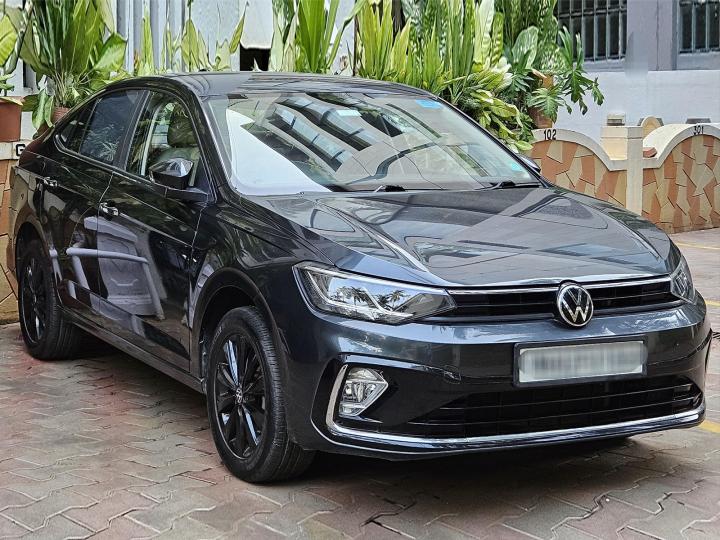News
My Volkswagen Virtus 1.0L MT: 2 year review after owning a Honda City
There’s not too much lag, and you don’t get the sense that it’s being overworked – it’s impressively refined for a little three-pot in what is not a small car.
BHPian raycers_honda recently shared this with other enthusiasts.
My Virtus has just completed two years.
This is her on day 1 at the amazing mega delivery launch event put up by VW at Jio World Drive in Mumbai.

For anyone planning on getting a Virtus (1.0 liter TSI manual transmission), here's a brief rundown on the ownership and the costs involved.
Some interesting stats below (from a fuel log app):
- 2 years ownership - 14,320 km
- 37 is the total number of fill-ups (99% XP95)
- Average fuel consumption figures (over 2 years): 10.62 km/l, best fuel consumption is 22.57 km/l, worst fuel consumption is 8.27 km/l
The app calculates these too:
- Average cost per kilometer (over 2 years): 10.583/km, best cost per km is 4.997/km, worst cost per km is 13.701/km
- Average cost per day is 219.39 Rupees
- Average cost per month is 6677.77 Rupees
- Average mileage per day is 20.17 km
- Average mileage per month is 572.76 km
I thought owning a manual transmission would be a pain to drive, but VW has tuned it beautifully. The smooth-shifting, five-speed manual transmission mated to the 3-cylinder 1.0 TSI engine works brilliantly. 115 bhp may not sound like much, but it's rather explosive, especially in manual spec. The word 'underpowered' certainly does not spring to mind when thinking of it as just a 999cc engine.
There’s not too much lag, and you don’t get the sense that it’s being overworked – it’s impressively refined for a little three-pot in what is not a small car. I have been on drives with the Virtus fully loaded and packed with myself plus three large adults weighing roughly over 70 kg each and have not once found it underpowered.

I previously owned a 1.5 liter i-VTEC MT for 7 years and a Vento 1.6 MT, and I have found this little engine more fun to drive. The steering is nice and weighty too, and the smaller (and thus lighter) engine means there’s less weight over the front axle, making it more pleasurable to drive.
Initially, in the first few 100 km, I filled normal petrol, but after trying out XP95, I noticed a significant difference in the engine, mainly in pickup and engine noise. I always used to wonder why VW recommends filling RON95 until I read this: "VW engines, equipped only with direct injection (like the VW 1.0l TSI), have a common problem with carbon buildup on the intake ports and the intake valves. It continuously happens due to the lack of fuel as a natural cleaner in the intake ports. The soot layer restricts airflow, drops the engine output, and leads to serious damage to intake valves and valve seats. The best thing you can do to prevent that problem is just using good fuel (super unleaded at RON 95). But the mechanical cleanup process at least every 50k miles will keep the engine in top condition."
And here’s to many more years of ownership to look forward to.
Check out BHPian comments for more insights and information.
- Tags:
- Indian
- Member Content
- Volkswagen
- Virtus



















